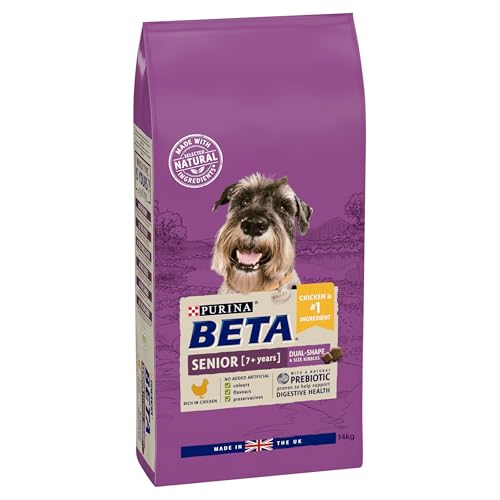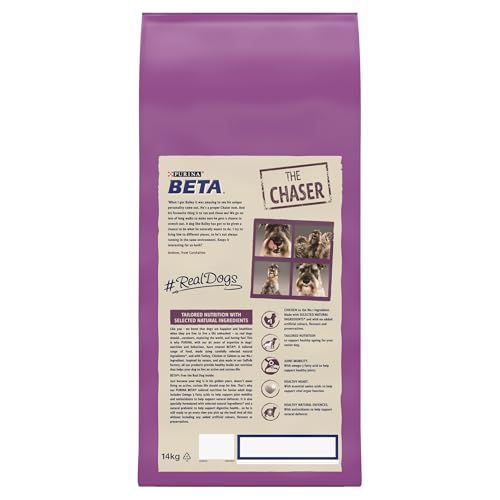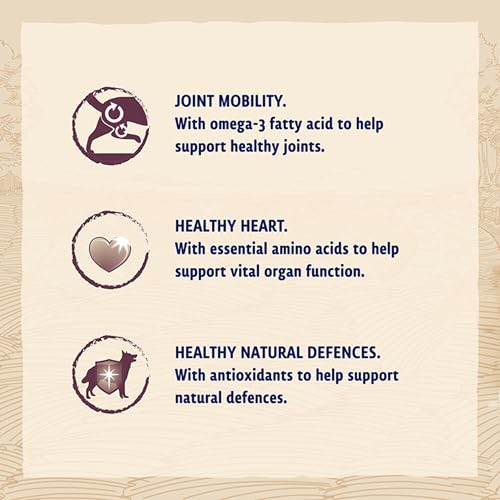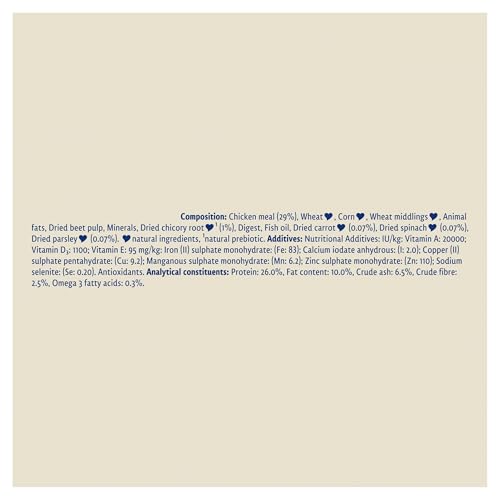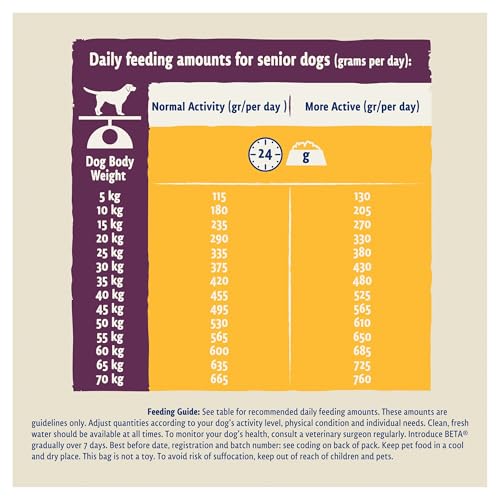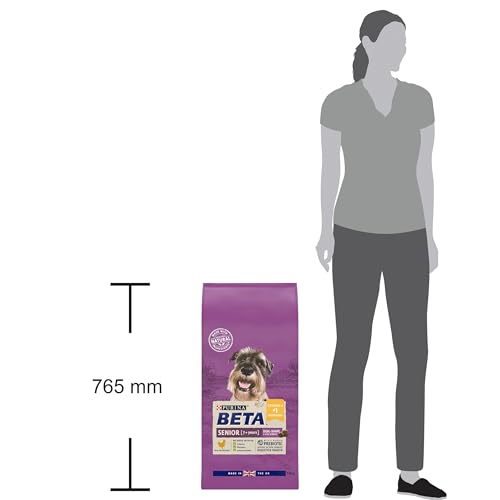



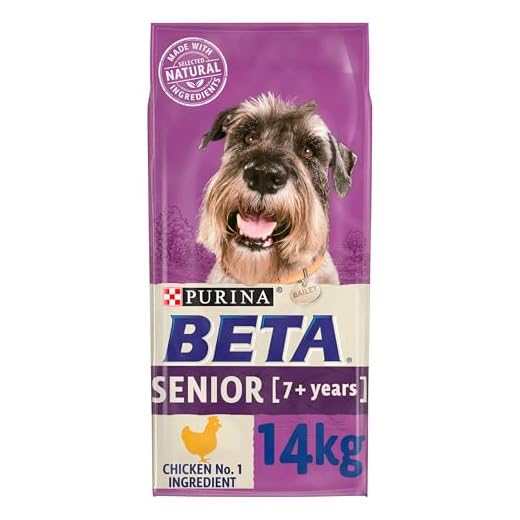




As a devoted dog owner, I understand the importance of choosing the right food for our beloved canine companions. The market is flooded with numerous options, making the decision process overwhelming. It’s not just about picking any dog food; it’s about selecting one that provides optimal nutrition, suits your dog’s specific needs, and contributes to their overall health and happiness.
Throughout my journey in finding the best commercial dog food, I’ve delved into countless brands, scrutinised ingredient lists, and consulted with veterinarians. The aim was to understand what truly makes a dog food stand out from the rest. I discovered that the best commercial dog foods are those that strike a balance between high-quality ingredients, appropriate nutritional profiles, and stringent safety standards.
In this article, I will share my findings on some of the top commercial dog foods available. We’ll explore the key factors to consider when choosing a dog food, such as protein sources, grain versus grain-free options, and the presence of essential vitamins and minerals. Additionally, I’ll highlight a few exceptional brands that have consistently received positive feedback from both pet owners and professionals alike.
By the end of this article, you will have a clearer understanding of what to look for in commercial dog food and feel more confident in making a choice that ensures your dog’s dietary needs are met. After all, our dogs depend on us to provide them with the best, and their diet is a cornerstone of their well-being.
Key Advantages of Selecting Premium Commercial Dog Food
Choosing the right food for my dog has always been a priority for me. It’s not just about satisfying their hunger; it’s about ensuring they get the necessary nutrients for a healthy, active life. When I opted for high-quality commercial dog food, I noticed significant positive changes in my pet’s overall well-being.
There are numerous benefits to feeding my dog the best commercial dog food available. These advantages span from improved health to enhanced energy levels and even to the condition of their coat and teeth. Here, I’ll outline some of the key reasons why I believe investing in premium dog food is worth every penny.
Enhanced Nutritional Content
Premium dog foods are formulated with a balanced mix of essential nutrients that are critical for a dog’s health. These foods contain high-quality proteins, healthy fats, vitamins, and minerals that support vital bodily functions. Unlike cheaper alternatives, premium brands often use whole meat and fresh vegetables rather than fillers and by-products.
- Protein Quality: High-quality commercial dog foods use real meat sources, which are crucial for muscle development and maintenance.
- Healthy Fats: Essential fatty acids from sources like fish oil promote a shiny coat and healthy skin.
- Vitamins and Minerals: Added vitamins and minerals ensure that my dog gets all the necessary nutrients to support their immune system and overall health.
Better Digestibility
The ingredients in top-tier commercial dog foods are typically more digestible, which means my dog can absorb and utilize more of the nutrients. This leads to smaller, firmer stools, and less waste. High digestibility also helps in maintaining a healthy digestive tract and reduces the risk of food-related allergies.
Improved Energy Levels and Vitality
Since I switched to premium dog food, I’ve noticed my dog has more energy and seems more vibrant. The superior ingredients in these foods provide sustained energy levels throughout the day. This is particularly important for active dogs that need endurance and strength.
- Consistent Energy: High-quality carbs and proteins give a steady release of energy, preventing spikes and crashes.
- Active Lifestyle Support: Nutrient-rich formulas support high activity levels, enhancing my dog’s stamina and performance.
Overall Health and Longevity
Feeding my dog the best commercial food available not only supports their immediate health but also contributes to a longer, healthier life. Quality ingredients support everything from heart health to joint function, reducing the risk of chronic diseases as my dog ages.
| Health Aspect | Benefit |
|---|---|
| Heart Health | Ingredients like taurine support cardiovascular health. |
| Joint Function | Glucosamine and chondroitin help maintain healthy joints. |
| Immune Support | Antioxidants from fruits and vegetables bolster the immune system. |
How to Identify High-Quality Ingredients in Commercial Dog Foods
Choosing the right commercial dog food for my furry companion is essential for their health and well-being. I always start by examining the ingredient list on the packaging, as it provides crucial information about the nutritional value of the food. Identifying high-quality ingredients helps ensure my dog gets the best possible nutrition from their diet.
When scrutinising the ingredient list, I focus on the first few items, as they make up the bulk of the food. High-quality dog foods often list specific animal proteins, such as “chicken,” “beef,” or “salmon,” as the primary ingredient. These sources of protein are essential for muscle development and overall health. Avoid products that use vague terms like “meat meal” or “animal by-products,” as these can include low-quality protein sources.
Key Indicators of Premium Ingredients
Beyond the primary protein source, I look for whole food ingredients that contribute to a balanced diet. Here are some key indicators of high-quality ingredients in commercial dog foods:
- Whole Grains and Vegetables: Ingredients such as brown rice, sweet potatoes, and peas provide essential carbohydrates, fibre, and vitamins. These whole foods are preferable to fillers like corn or wheat, which offer limited nutritional value.
- Named Animal Fats: Fats are crucial for energy and healthy skin and coat. I choose foods that specify the source of fat, such as “chicken fat” or “fish oil,” rather than generic terms like “animal fat.”
- Natural Preservatives: To avoid harmful additives, I opt for foods preserved with natural substances like mixed tocopherols (vitamin E) or rosemary extract, instead of artificial preservatives like BHA, BHT, or ethoxyquin.
Additionally, I pay attention to the presence of fruits and vegetables, which provide antioxidants and phytonutrients. Ingredients like blueberries, spinach, and carrots can boost my dog’s immune system and promote overall health.
By carefully evaluating the ingredient list and understanding what to look for, I can make informed decisions that contribute to my dog’s long-term health and happiness.
Understanding Nutritional Labels: What to Look For
As a pet owner, ensuring my dog gets the best nutrition is a priority. However, navigating the information on commercial dog food labels can be daunting. It’s essential to know what to focus on to make informed decisions about my dog’s diet. In this guide, I will share the key aspects I look for when reading nutritional labels on dog food packages.
First and foremost, I pay close attention to the ingredients list. Ingredients are listed in order of weight, so the first few items are the most significant. I prefer foods where a named protein source, like chicken or beef, is the first ingredient. This indicates that the food is rich in high-quality protein, essential for my dog’s muscle health and overall vitality.
Key Components on Dog Food Labels
When scrutinising the nutritional label, here are some critical components I focus on:
- Guaranteed Analysis: This section shows the minimum percentages of crude protein and fat, and the maximum percentages of crude fibre and moisture. For instance, higher protein content is crucial for active dogs.
- AAFCO Statement: The Association of American Feed Control Officials (AAFCO) provides nutritional adequacy standards. I look for statements like “complete and balanced” which means the food meets AAFCO guidelines for a particular life stage.
- Specific Nutrients: I check for essential vitamins and minerals. Ingredients like omega-3 and omega-6 fatty acids are important for skin and coat health, while glucosamine supports joint health.
Understanding these elements helps me ensure that my dog gets a balanced diet. By carefully reading and interpreting nutritional labels, I can choose food that supports my dog’s health and well-being, avoiding low-quality fillers and artificial additives. This attention to detail makes a significant difference in my pet’s quality of life.
Grain-Free vs. Grain-Inclusive: Which is Better for Your Dog?
Choosing the right food for your dog is a crucial decision that can significantly impact their health and well-being. Among the many choices available, one of the most debated topics is whether to opt for grain-free or grain-inclusive dog food. Each option has its proponents and critics, making it essential to understand the benefits and potential drawbacks of both.
When I started exploring different dog food options for my own pet, I found myself inundated with conflicting information. To make an informed decision, it’s important to delve into the specifics of each type of diet and consider your dog’s unique needs.
Understanding Grain-Free Dog Food
Grain-free dog food has become increasingly popular in recent years. This type of food replaces grains like wheat, corn, and rice with alternative sources of carbohydrates such as sweet potatoes, peas, and lentils. Proponents argue that grain-free diets are closer to what dogs would naturally eat in the wild, potentially reducing the risk of allergies and improving digestion.
Advantages of Grain-Free Diets:
- Allergy Prevention: Grain-free foods can be beneficial for dogs with grain sensitivities or allergies.
- Better Digestion: Some dogs may digest grain-free foods more easily, leading to better stool quality and reduced gas.
- High Protein Content: Often, grain-free options have a higher protein content, which can be beneficial for active or working dogs.
Examining Grain-Inclusive Dog Food
On the other hand, grain-inclusive dog foods include grains as a source of carbohydrates and fibre. These diets have been the traditional choice for decades and are formulated to provide balanced nutrition. Grains can offer essential nutrients and energy, supporting overall health and well-being.
Benefits of Grain-Inclusive Diets:
- Balanced Nutrition: Grains provide essential vitamins and minerals, contributing to a well-rounded diet.
- Energy Source: Carbohydrates from grains can be a good energy source, especially for active dogs.
- Cost-Effective: Typically, grain-inclusive foods are more affordable than grain-free alternatives.
Ultimately, the choice between grain-free and grain-inclusive dog food depends on your dog’s specific health needs, dietary preferences, and any medical conditions they may have. Consulting with a veterinarian can provide personalized recommendations to ensure your furry friend receives the best nutrition possible.
Highly Rated Commercial Dog Foods for Various Breeds
Choosing the right food for your dog is crucial for their health and well-being. Different breeds have unique nutritional needs, and it’s important to select a commercial dog food that caters to these specific requirements. From small breeds that need nutrient-dense formulas to large breeds requiring joint support, there are many options available on the market.
In this guide, I will outline some of the best commercial dog foods tailored for different breeds. Whether you have a tiny Chihuahua or a giant Great Dane, you can find a suitable food that will help your dog thrive. Let’s delve into some of the most recommended options for various breeds.
Recommended Commercial Dog Foods for Specific Breeds
- Labrador Retrievers: Labs are prone to obesity and joint issues, so it’s essential to choose a food that is low in calories but rich in protein and contains glucosamine for joint health. Brand X Large Breed Formula is an excellent choice, offering balanced nutrition with added joint support.
- Chihuahuas: These tiny dogs need a high-calorie diet in small portions to maintain their energy levels. Brand Y Small Breed Recipe is specifically designed to meet the needs of small breeds, with a focus on high-quality protein and fat.
- German Shepherds: Known for their strong build and active lifestyle, German Shepherds require a diet that supports their muscular structure and energy needs. Brand Z Active Dog Formula provides the right balance of protein and fats, along with essential vitamins and minerals.
- Bulldogs: Bulldogs can suffer from food allergies and digestive issues. A grain-free option like Brand A Hypoallergenic Recipe can help minimize allergic reactions and support a healthy digestive system.
- Great Danes: Due to their massive size, Great Danes need a diet that supports their bones and joints while also providing sufficient energy. Brand B Giant Breed Nutrition is fortified with glucosamine, chondroitin, and a proper balance of calcium and phosphorus.
It’s essential to consult with your veterinarian before making any significant changes to your dog’s diet. They can provide personalized recommendations based on your dog’s specific health needs and lifestyle. By choosing the right commercial dog food for your breed, you can ensure your furry friend stays healthy and happy.
Recommended Commercial Dog Foods for Senior Dogs
As our beloved canine companions age, their nutritional needs change significantly. Choosing the right commercial dog food for senior dogs is crucial to maintaining their health, vitality, and overall well-being. With so many options available on the market, it can be challenging to determine which products are best suited for older dogs. In this guide, I will share my recommendations for commercial dog foods that cater specifically to senior dogs, taking into account their unique dietary requirements.
Senior dogs often require a diet lower in calories but rich in essential nutrients to support their aging bodies. Look for foods that provide high-quality protein, healthy fats, and a balanced mix of vitamins and minerals. Additionally, ingredients that promote joint health, support cognitive function, and improve digestive health are highly beneficial. Below are some excellent commercial dog food options tailored for senior dogs.
Top Picks for Senior Dog Nutrition
- Hill’s Science Diet Senior Dog Food: This brand is renowned for its scientifically-formulated recipes. Their senior dog food options include ingredients that support joint health, such as glucosamine and chondroitin, as well as antioxidants for immune system support.
- Royal Canin Aging 12+ Senior Dog Food: Designed for senior dogs aged 12 years and older, this food focuses on maintaining healthy skin and coat, promoting optimal digestion, and supporting heart health with balanced sodium levels.
- Blue Buffalo Life Protection Formula Senior Dog Food: Blue Buffalo’s senior formula includes real meat, whole grains, and garden vegetables, along with LifeSource Bits–a blend of antioxidants, vitamins, and minerals to support immune system health and life stage requirements.
These recommendations are based on the quality of ingredients and the specific benefits they offer to senior dogs. It’s always a good idea to consult with your veterinarian to ensure the chosen food meets your dog’s specific health needs. Proper nutrition can make a significant difference in the quality of life for your senior dog, helping them stay healthy and happy in their golden years.
How to Transition Your Dog to a New Commercial Food Safely
Changing your dog’s diet to a new commercial food requires careful planning to ensure a smooth and safe transition. Abruptly switching food can cause digestive issues, so it’s essential to introduce the new diet gradually. Here’s a step-by-step guide to help you manage this change effectively.
Firstly, you’ll need to determine the right timing for the transition. It’s best to start when your dog is healthy and free from stressors like travel or new environments. Make sure to choose a high-quality commercial food that meets your dog’s nutritional needs and consult your vet if you’re unsure about the best option for your pet.
Step-by-Step Transition Process
To ensure a successful transition, follow these steps over a period of seven to ten days:
- Start with a Small Amount: Begin by mixing a small portion of the new food with your dog’s current diet. A ratio of 25% new food to 75% old food is a good starting point.
- Gradually Increase the Ratio: Every two to three days, increase the amount of new food while decreasing the old food. Move to a 50/50 ratio, then 75/25, and finally 100% new food.
- Monitor Your Dog’s Reaction: Keep a close eye on your dog during the transition period. Look for signs of digestive upset, such as diarrhoea, vomiting, or changes in appetite. If any issues arise, slow down the transition and give your dog’s digestive system more time to adjust.
- Adjust Portion Sizes if Necessary: Some commercial foods have different caloric densities, so you might need to adjust the portion sizes to maintain your dog’s ideal weight. Check the feeding guidelines on the new food’s packaging and adjust accordingly.
- Maintain Consistency: Consistency is key. Ensure you’re feeding your dog at the same times each day and keeping the transition gradual and steady.
Throughout this process, it’s important to remain patient and attentive to your dog’s needs. Transitioning to a new commercial dog food can be a positive experience for your pet, leading to improved health and well-being when done correctly.
If at any point you have concerns about the transition or your dog’s health, don’t hesitate to contact your veterinarian for advice. They can provide personalised recommendations and support to ensure your dog remains happy and healthy during the dietary change.
Expert Tips for Storing and Serving Commercial Dog Food
Proper storage and serving of commercial dog food are crucial to maintain its quality and ensure your furry friend receives optimal nutrition. Follow these expert tips to keep your dog’s food fresh and safe:
1. Store in a Cool, Dry Place: Keep the dog food in its original packaging or an airtight container to prevent moisture and pests from contaminating it. Store it in a cool, dry area away from direct sunlight.
- Tip: Avoid storing dog food in hot or humid locations like garages or outdoor sheds, as it can lead to spoilage or the growth of harmful bacteria.
2. Check Expiry Dates: Always check the expiration or “best by” date on the packaging before purchasing or serving dog food. Consuming expired food can lead to health issues for your pet.
- Tip: Use the “first in, first out” method to rotate older food to the front of the storage area and place newer purchases behind them to ensure freshness.
By following these expert tips, you can ensure that your dog’s commercial food remains fresh, nutritious, and safe for consumption.
Best Commercial Dog Foods
Features
| Part Number | 10753 |
| Model | 10753 |
| Size | 10 kg (Pack of 1) |
| Language | French |
Features
| Part Number | 501006 |
| Model | 501006 |
| Release Date | 2019-12-23T00:00:01Z |
| Size | 14 kg (Pack of 1) |
Features
| Part Number | HARRGFSC-12 |
| Model | HARRGFSC-12 |
| Release Date | 2024-01-01T00:00:01Z |
| Size | 12 kg (Pack of 1) |
| Price history for Harringtons Superfoods Grain Free Dog Food | |
|---|---|
|
Latest updates:
|
|
Features
| Part Number | ESP50062005 |
| Model | ESP50062005 |
| Color | Chicken and Rice |
| Release Date | 2018-11-14T00:00:01Z |
| Size | 15 kg (Pack of 1) |
Features
| Part Number | 12231689 |
| Model | 12531980 |
| Color | transparent |
| Release Date | 2014-05-23T00:00:01Z |
| Size | 1 count (Pack of 1) |
Features
| Part Number | 29046 |
| Model | 02SKFTLS |
| Warranty | 1 year manufacturer |
| Size | 1 count (Pack of 1) |
| Language | English |
| Price history for Skinner's Field & Trial Light Dog Food | |
|---|---|
|
Latest updates:
|
|
Q&A:
What are some top-rated commercial dog foods?
Some top-rated commercial dog foods include Blue Buffalo, Orijen, Taste of the Wild, Wellness Core, and Royal Canin.
What factors should I consider when choosing a commercial dog food?
When choosing a commercial dog food, consider factors such as your dog’s age, breed, size, activity level, any health concerns, ingredient quality, and the food’s nutritional content.
Are there any specific ingredients I should look for in commercial dog foods?
Look for high-quality protein sources like chicken, beef, or fish as the first ingredient. Also, consider foods with whole grains, fruits, and vegetables for added nutrition.
Should I avoid certain ingredients in commercial dog foods?
Avoid dog foods containing artificial preservatives, colours, and fillers like corn, wheat, and soy. Also, be cautious of foods with excessive amounts of by-products or unidentified meat sources.
How can I transition my dog to a new commercial food?
Gradually transition your dog to a new commercial food over 7-10 days by mixing increasing amounts of the new food with decreasing amounts of the old food to prevent digestive upset.
























